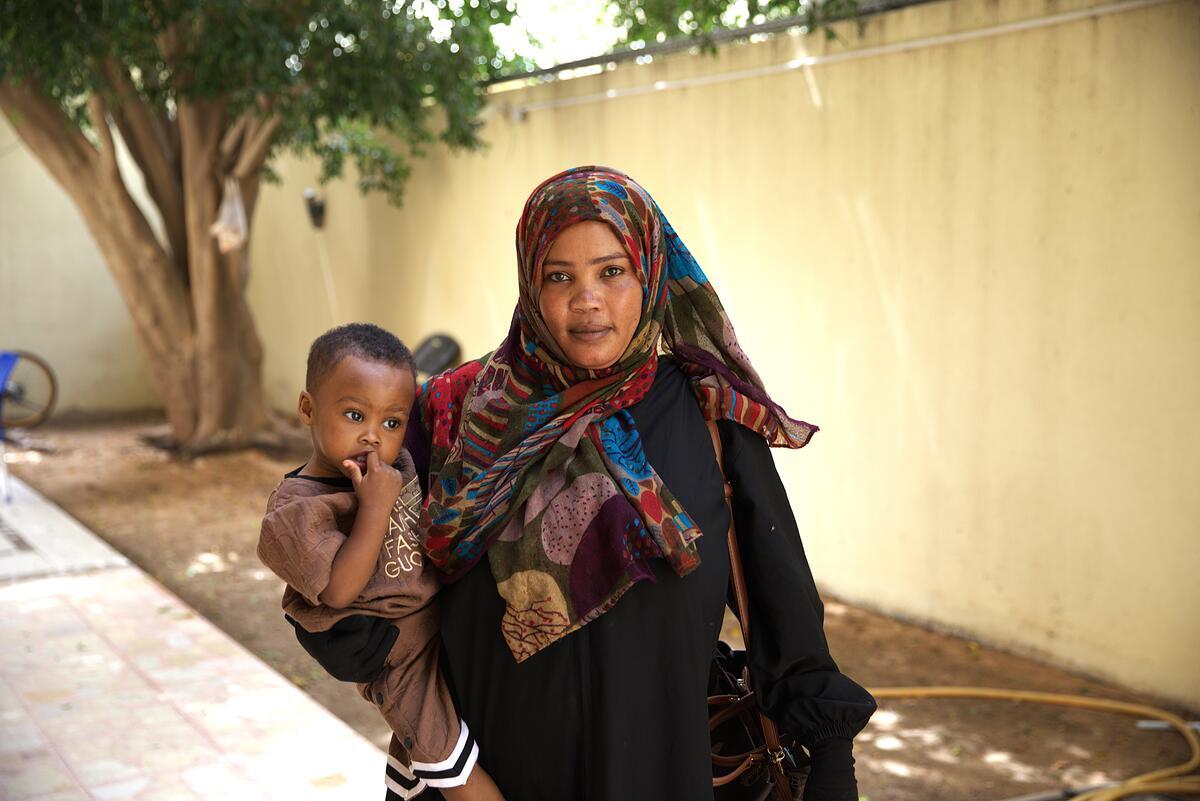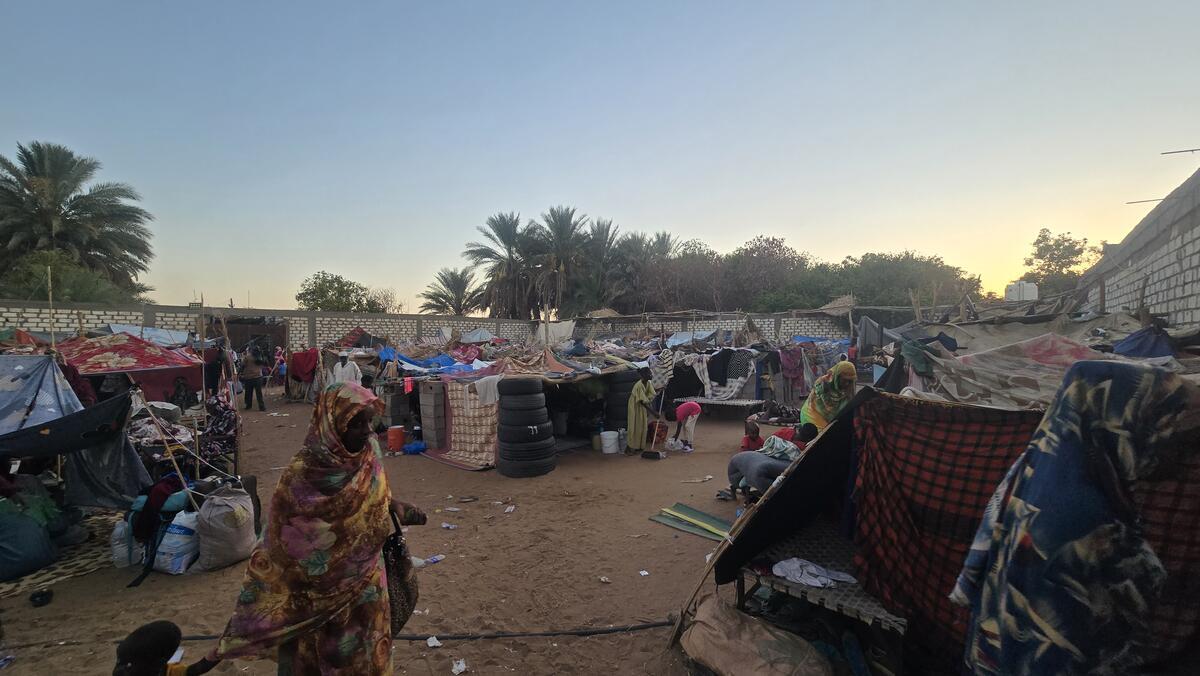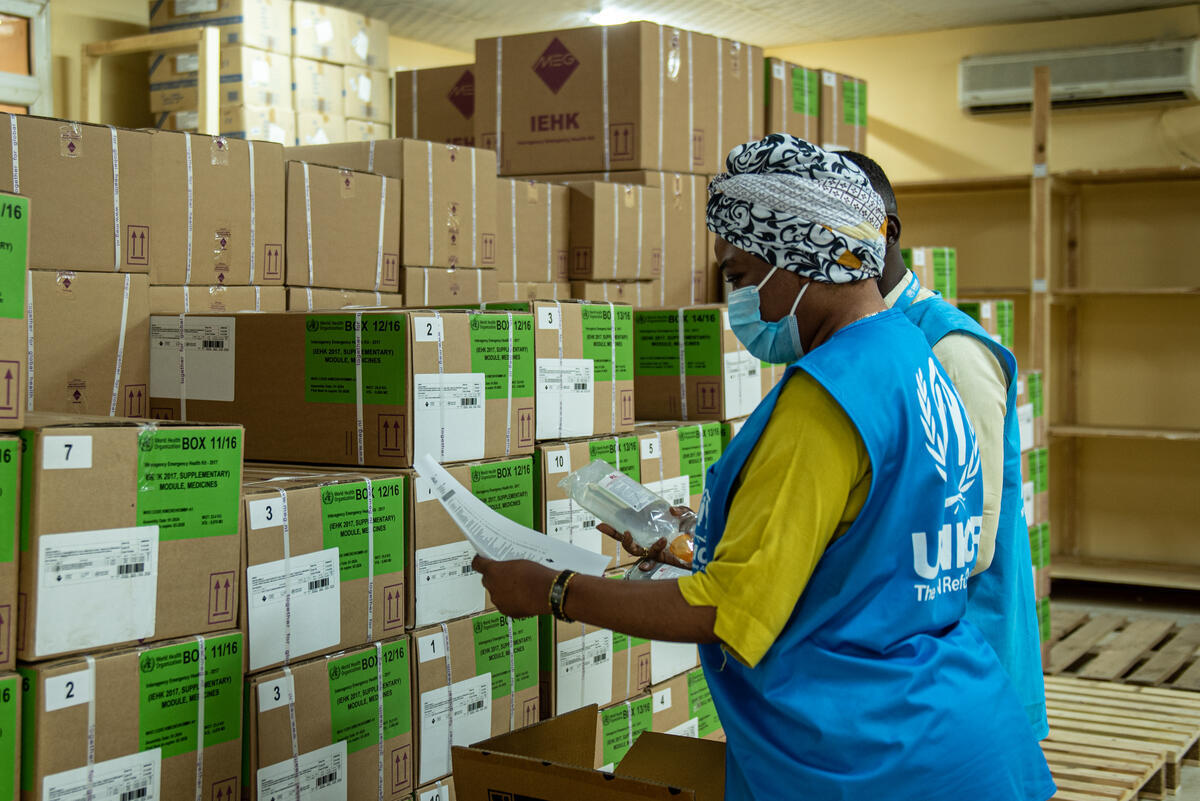UNHCR chief returns to Tunisia to meet refugees from Libya
UNHCR chief returns to Tunisia to meet refugees from Libya

CHOUCHA CAMP, Tunisia, June 17 (UNHCR) - UN High Commissioner for Refugees António Guterres returned this week to North Africa and issued a fresh call for the international community to help countries like Tunisia who have sheltered hundreds of thousands of people displaced by the violence in Libya.
Guterres, touring Choucha Camp near Tunisia's border with Libya on Thursday, also stressed that the international community could not allow the crisis in Libya to destabilize Tunisia. He warned that Tunisian generosity, which comes at a crucial time in its own modern history, should not be taken for granted.
Making his second visit to Choucha since the Libyan crisis erupted in February, the High Commissioner praised the Tunisian people and government for their remarkable generosity in welcoming more than 540,000 people fleeing Libya, including migrant workers, refugees and asylum-seekers.
Meeting some of these refugees, many of whom cannot return to their countries and cannot stay in Tunisia, he pledged to do all he could to find a solution to their situation. "We will help you and I hope you will have a better life," he told a refugee from Ethiopia who had nearly lost his life weeks earlier while trying to reach Europe by boat. "I am personally lobbying for more resettlement slots. It is urgent that we provide these people with solutions."
Guterres said he had decided to revisit Tunisia just ahead of World Refugee Day (June 20), "because we need to do our outmost to help Tunisia to keep its borders open for everybody, including those who may arrive without any valid document." He said the North African country could not bear the burden alone.
"Today, many Tunisian families, at great personal cost, host some 70,000 Libyan refugees in the best tradition of Islamic refugee hospitality. I'm humbled by their generosity and we want to increase our support for these proud communities," said the UNHCR chief.
Thousands of people continue to cross the nearby border at Ras Adjir in both directions. In March and April, UNHCR and the International Organization for Migration helped more than 100,000 Asian and African migrants to return to their homes as part of a massive humanitarian evacuation programme.
At first, most of the arrivals in Tunisia were Tunisians or foreigners who had been working in Libya. Since mid-April, Libyan nationals have constituted the majority of arrivals. Many Libyans head back across the border after purchasing food and fuel, but 70,000 remain in Tunisia cared for by the local community and UNHCR.
At the height of the exodus from Libya in early March, Choucha Camp hosted more than 22,000 people. Today, it shelters some 3,500, mostly refugees and asylum-seekers from nearly 30 countries. Trying to flee Libya, some of the refugees in Choucha have boarded overcrowded boats in a desperate, and often fatal, attempt to reach Europe.
Elias, an ethnic Oromo refugee from Ethiopia, told Guterres that he had tried to reach the small Italian island of Lampedusa by boat. But the boat ran out of fuel and started drifting. Only nine of the 72 passengers survived, Elias explained, adding: "We hope you will help us to find a new life."
Some of those Guterres spoke to told him that life in Choucha has been very difficult. In late May, a fire killed four Eritrean refugees. In the ensuing violence and chaos, two thirds of the camp was destroyed. UNHCR moved quickly to reconstruct and restructure the camp.
"I woke up in the middle of the night and I saw the fire. I ran to wake up my friends but it was too late. I felt the fire on me. I do not remember anything else before waking up in the hospital" said Ibrahim, one of the Eritrean refugees who were saved from the blaze that destroyed more than 20 tents.
The High Commissioner commiserated with the young man, while stressing how important it was to stick to UNHCR guidelines on camp planning, including keeping sufficient distance between tents to minimize the risk of fire spreading.
Guterres also met Somali refugees in camp. "These people have suffered many times. They were forced to flee Somalia, then Sudan and then Libya and it is of paramount importance to end this suffering. Solutions are urgently needed for this group and others," he said.
Before leaving the camp, the High Commissioner called for more donor support to help improve the situation for the displaced and host communities in Tunisia. He also noted that UNHCR has received only half of the funds that it needs to run operations in the first six months of the emergency.
On Friday, Guterres was scheduled to visit a camp housing ethnic Berbers who have fled into Tunisia at the Dehiba crossing to escape fighting in Libya's Western Mountains. He will also meet refugees staying with host families in Tataouine and Medenine.
By Andrej Mahecic in Choucha Camp, Tunisia








